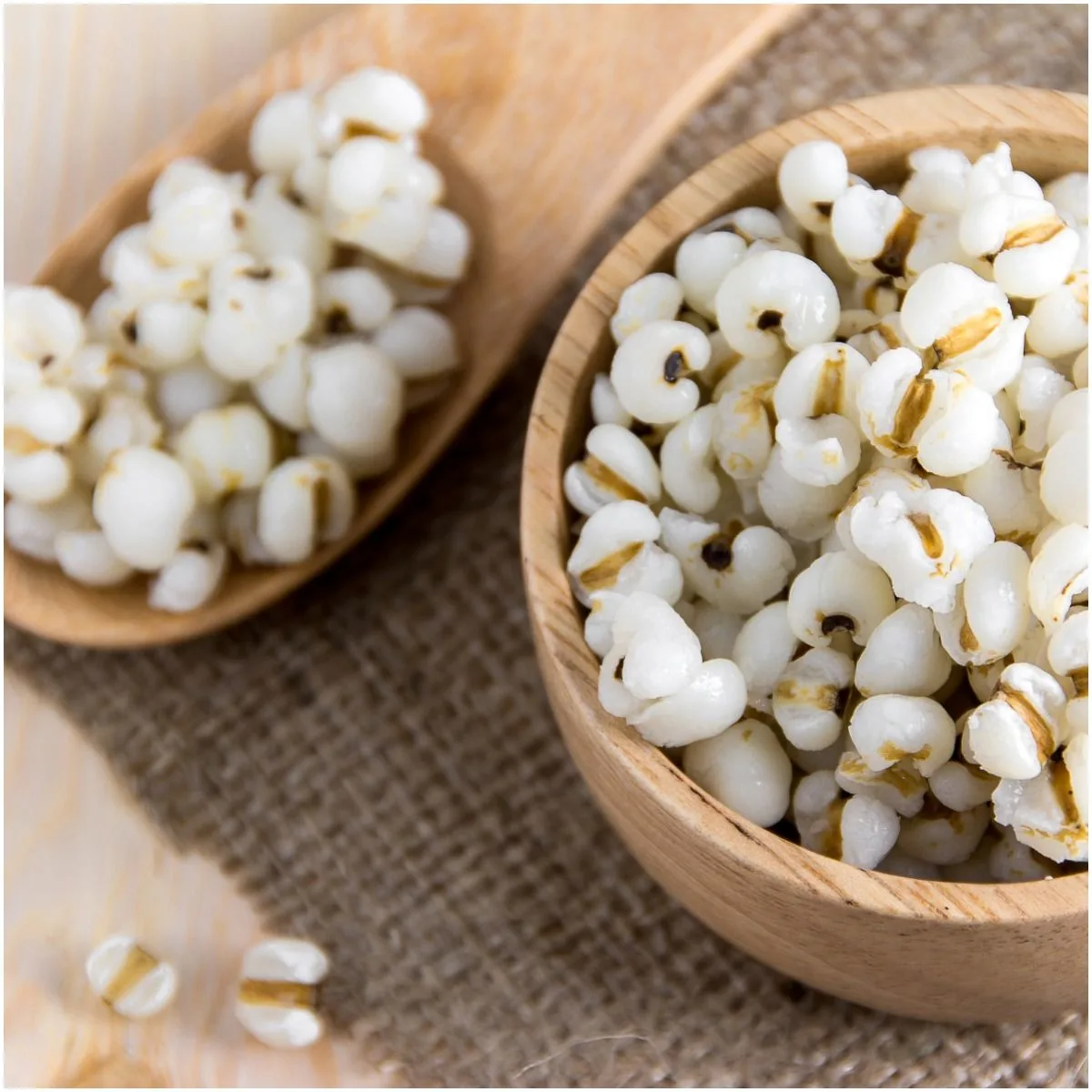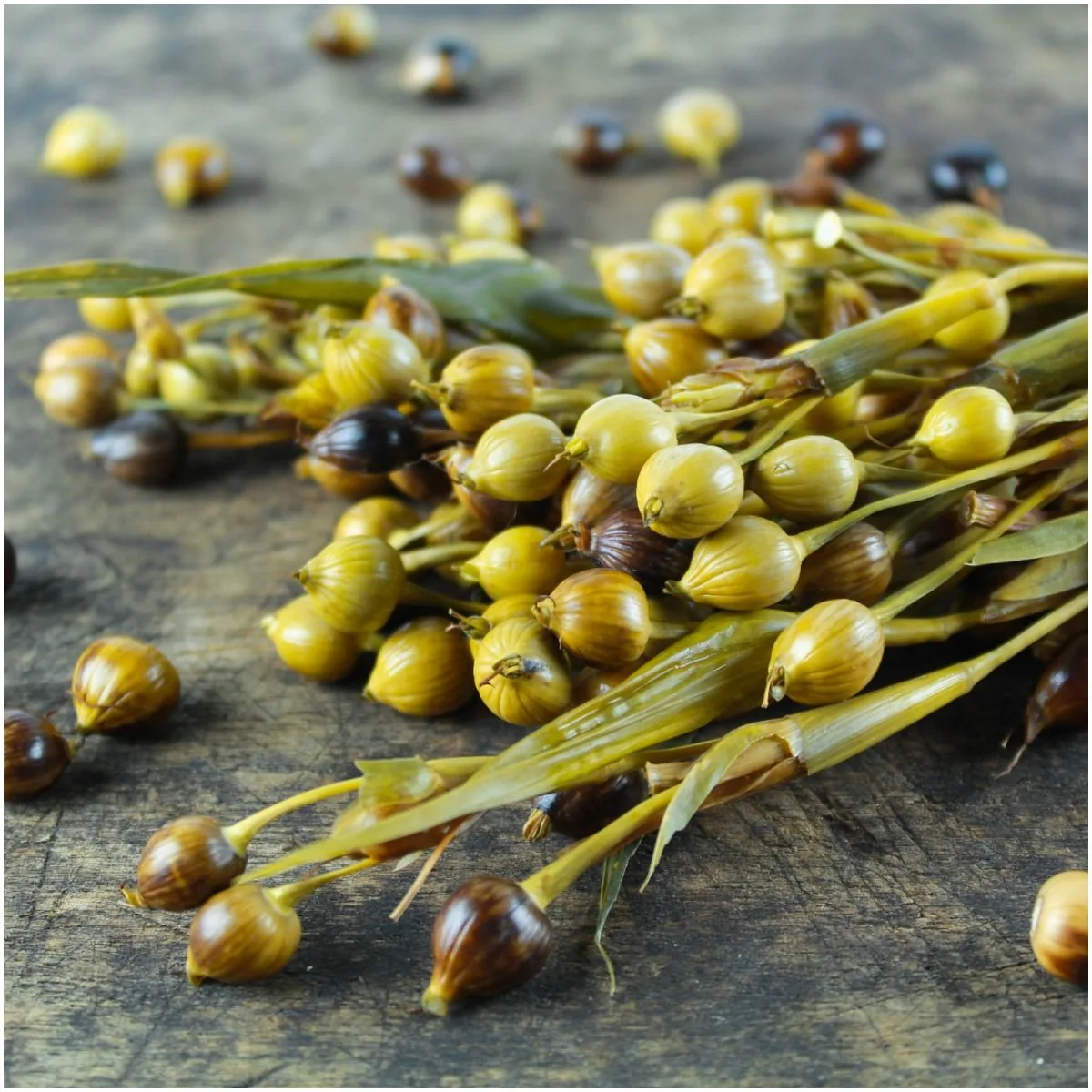Coix Seed (Job’s Tears) – Nutrition Facts & Health Benefits:
Introduction
Coix seed, also known as pearl barley, Job’s tears, or Chinese pearl barley, belongs to the family Gramineae.
Job’s tears is an important crop used as food in Asian countries.
Also, it is used in Traditional Chinese Medicine and mainly cultivated in provinces like Fujian, Zhejiang, Liaoning, and Hebei of China.
In the present day, the plant spread widely and is found in Japan, eastern India, northern Africa, the Philippines, Central America, the Caribbean, the United States, and northern South America.
The seeds are egg-shaped or oval-shaped, with a slightly sweet taste and a milky white outer surface.
Nutrition Facts of Job’s Tears
Per 100 grams, these seeds contain approximately:
- 7 percent fat;
- 18 percent protein;
- 52 percent starch;
- protein – 15.4 g;
- dietary fiber – 3g;
- Ca – 25 mg;
- Fe – 5 mg;
- Vitamin B1 – 0.28 mg;
- Vitamin B2 – 0.19 mg;
- Niacin – 4.3 mg.
Health Benefits of Coix Seed

Myibean/Shutterstock
These seeds have been reported to have the following properties:
- anti-allergic;
- anti-inflammatory;
- antioxidant;
- hypoglycemic;
- hypolipidemic (any agent that reduces the level of lipoproteins and lipids in the blood);
- anti-cancer.
Spleen Health
The spleen is an organ under the ribs and above the stomach on the left side of your body. It weighs around 7 oz.
This organ has numerous supporting roles in the human body, such as:
- fighting certain kinds of pathogenic bacteria that cause meningitis (inflammation of the tissue that surrounds the brain and spinal cord) and pneumonia;
- storage of platelets (blood cells that help your body form clots to stop bleeding) and white blood cells;
- recycling of old red blood cells;
- acts as a filter for blood as part of the immune system.
Conditions that cause an enlarged spleen include:
- a blood clot in a vein of the liver or spleen;
- metabolic disorders such as Niemann-Pick disease (a lipid storage disorder) and Gaucher’s disease (an autosomal recessive inherited disorder of metabolism);
- hemolytic anemia (occurs when the red blood cells produced by the body do not function correctly);
- liver diseases such as cirrhosis (a disease in which healthy liver tissue is replaced with scar tissue);
- blood cancers like leukemia, Hodgkin’s disease (a type of cancer that starts in white blood cells), and lymphoma;
- viral, bacterial, and parasitic infections like tuberculosis, syphilis (an STI that is caused by the bacterium Treponema pallidum), mononucleosis (also called the kissing disease), endocarditis (an infection of the endocardium), and malaria.
Coix seeds used both as a drug and food in Traditional Chinese Medicine have the attribute of fortifying the spleen and inhibiting dampness.
READ MORE: Thaumatin (E957) – Side Effects
Menstrual Problems

Africa Studio/Shutterstock
Menstrual cycles frequently bring about numerous variety of uncomfortable symptoms leading up to your period. Causes of menstrual problems include:
- medications, like those to treat mental health problems or epilepsy;
- scarring within the uterine cavity;
- hormone-containing intrauterine devices;
- perimenopause (refers to the time during which the body makes the transition to menopause);
- hormonal birth control;
- late-onset congenital adrenal hyperplasia (several autosomal recessive diseases);
- Cushing’s syndrome (a primary adrenal gland disease);
- uncontrolled diabetes;
- primary ovarian insufficiency;
- elevated levels of the hormone prolactin;
- too little or too much thyroid hormone;
- excessive physical exercise without adequate rest and nutrition;
- bulimia (a type of eating disorder);
- anorexia nervosa.
The root of the plant is used to treat menstrual problems.
READ MORE: Foods High In Fiber
Prevention Of Chronic Inflammation
These seeds contain high levels of essential fatty acids that help to relieve inflammation and combat viral infections.
Warts
Warts are skin growths that appear when a virus infects the upper layer of the skin and causes an infection. Boiled seeds can be used to make a tea that is effective in curing warts.
READ MORE: Thyme vs Oregano – Differences
Cancer
According to statistics, in 2018, there will be about 1,750,000 new cancer cases diagnosed in the US. An anticancer drug made of Coix seed oil, called Kanglaite, has been proven effective in treating multiple cancers in China.
Kanglaite can be used for the treatment of:
- chorioepithelioma (a fast-growing tumor that develops from trophoblastic cells);
- ovarian cancer;
- lung cancer;
- digestive tract cancer.
The mechanism of action of the drug is as follows:
- reverses the multi-resistance of tumor cells to anticancer drugs;
- counteracts the cachexia of cancers;
- inhibits the tumor angiogenesis;
- affects the genetic expression of tumor cells by up-regulating FAS/Apo-1 gene expression;
- induces apoptosis of tumor cells;
- inhibits the mitosis of tumor cells during G2/M phases.
READ MORE: Mello Yello vs Mountain Dew – Comparison
Contact Dermatitis
Contact dermatitis is a red, itchy rash that is caused by direct contact with a substance or an allergic reaction to it. Symptoms of contact dermatitis include:
- blisters and draining fluid;
- itchy, painful, or burning skin;
- red rash, bumps, or a burn-like rash on the skin.
One of the traditional uses for these seeds is to treat allergies, including topical preparations of plant extracts for contact dermatitis.
Other Health Benefits
Job’s tears can also be used for:
- diarrhea;
- constipation;
- abdominal bloating;
- blood sugar regulation (useful for diabetics);
- muscle spasm relief.
Note
These seeds have a hole in the center that makes them ideal for beading purposes.
READ MORE: Red Algae – Health Benefits
Side Effects

Thanrada Homs/Shutterstock
These seeds may aggravate the symptoms in people with:
- dampness within their bodies;
- excessive urination;
- excessive perspiration;
- bad constipation;
- a dry throat.
Pregnancy
Pregnant women should avoid the use of coix seeds.
Featured image credit – Shutterstock
READ THIS NEXT: Mirabilis Jalapa (Four O’Clock | Marvel of Peru) – Medicinal Uses
Sources https://www.ncbi.nlm.nih.gov/pmc/articles/PMC5471471/ https://journals.plos.org/plosone/article?id=10.1371/journal.pone.0153269 https://www.sciencedirect.com/science/article/pii/S2225411016301122 https://www.researchgate.net/topic/Coix
